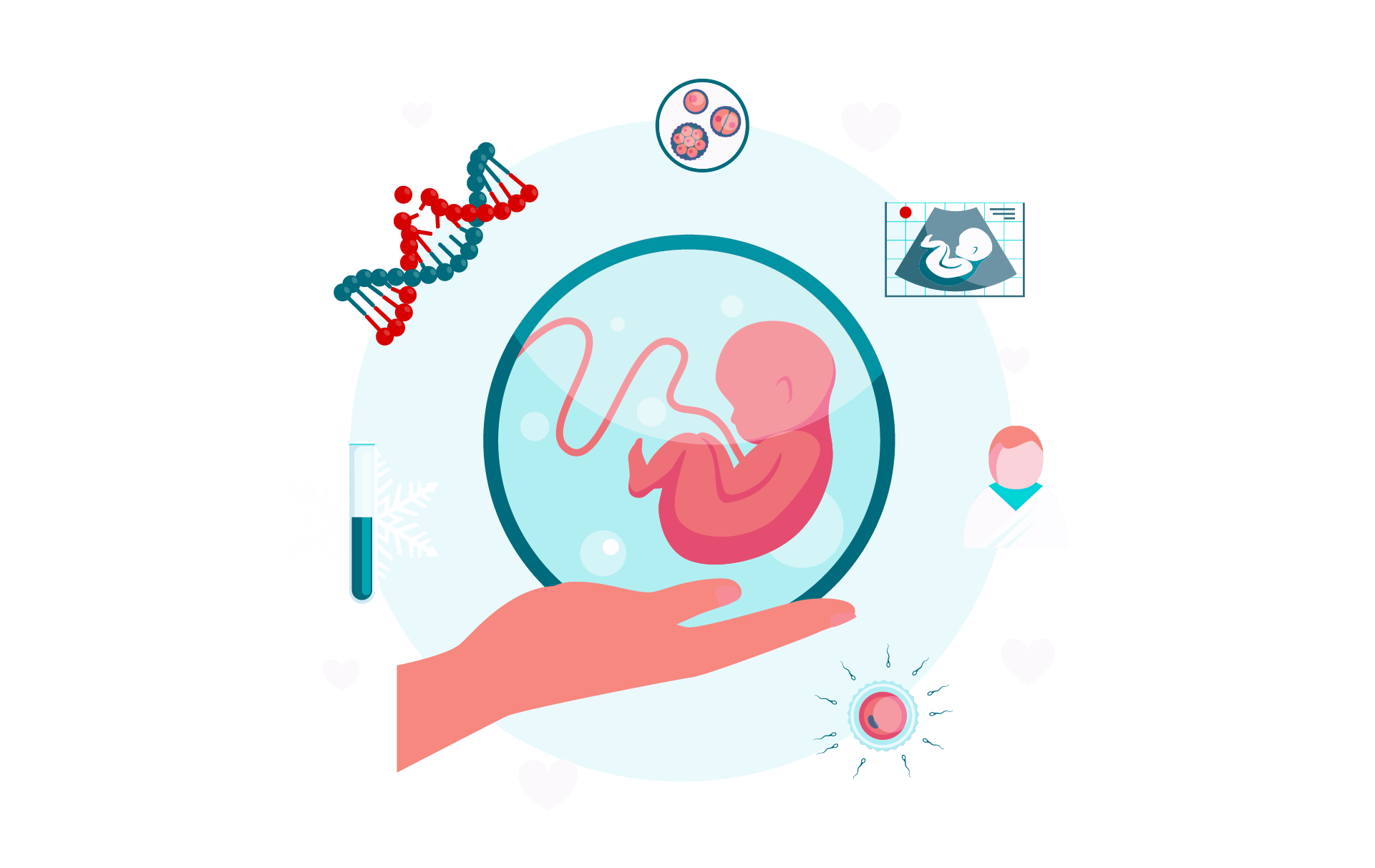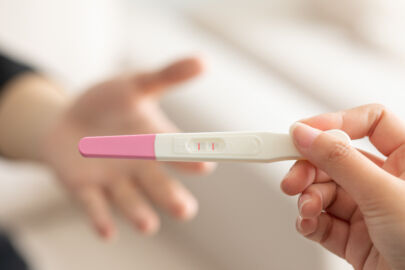
Fertility preservation is becoming more popular as people realize its benefits. Even young individuals are making informed decisions to safeguard their future fertility. Credence IVF Hospital, a top IVF center in India, celebrated a milestone with South Kerala’s first baby born from a frozen embryo. Let’s get to know more about embryo freezing.

What is embryo freezing?
Embryo freezing, or embryo cryopreservation, is a process where eggs are fertilized outside the body, then frozen and stored for future use. It’s commonly used by individuals seeking assistance with fertility and reproduction. This widely adopted method offers pregnancy rates similar to traditional approaches. The first successful procedure took place in the 1980s.
If you’re considering embryo freezing, you’ve come to the right place. We’re here to answer all your questions and guide you through the process.
Procedure
The embryo freezing process begins with ovulation induction, where hormonal medicines are taken to stimulate the ovaries to produce multiple eggs. Careful monitoring is needed during this stage to ensure the procedure goes smoothly. Next, the mature eggs are harvested using a needle inserted into the vagina, and a suction device removes the eggs from the follicles. This procedure will be done under sedation. The extracted eggs can be either frozen immediately or fertilized with sperm before freezing.
There are two methods for freezing embryos:
- Vitrification: A cryoprotective agent (CPA) is added to the embryos, preventing ice crystals from forming. The embryos are then placed in liquid nitrogen tanks at -321°F.
- Slow Freezing: CPA is added gradually in smaller amounts. The embryos are then placed in a machine that slowly decreases the temperature before being stored in liquid nitrogen at -321°F.
In both of these processes, the embryo will be stored in a straw-like container where it will be labeled with your details for identification later.
What are the risks involved in embryo freezing?
Embryo freezing at Credence IVF is a generally safe process with rare risks. While complications are uncommon, some potential risks include:
- Sedation complications: Issues may arise from the sedation used during the procedure.
- Infection or damage: The needle or catheter used to retrieve eggs can occasionally cause harm.
- Ovarian hyperstimulation syndrome: medications used to stimulate the ovaries might lead to this condition.
Embryo freezing does not cause defects, and the chances of complications are minimal. However, some risks to consider include:
- Embryo damage during freezing: There’s a slight risk of embryos being harmed in the freezing process.
- Non-viability for freezing: Some embryos might not be suitable for freezing.
- Failure to achieve pregnancy: There’s a possibility that thawing embryos may not result in a successful pregnancy.
- Multiple pregnancies: The process could lead to twins, triplets, or more.
Who should consider embryo freezing?
There are many reasons why people choose to opt for embryo freezing. This will vary from person to person. Some people may not be ready to have a child at the moment but might want to have a family in the future. Instead of taking chances, they can choose to do embryo freezing, as it is a safe option. Here are some situations where embryo freezing might be considered:
- Increasing age: The chances of infertility increase as you age. So, it is a safe option to preserve your chances of having a child when you are young and fertile.
- Gender transition: Those who are planning to transition or go through hormonal therapy or reconstructive surgery might choose to freeze their eggs.
- Infertility concerns: Addressing potential future challenges.
- Fertility-impacting treatments: such as chemotherapy or other radiation-involving treatments, will affect your infertility.
- Military deployment: To ensure the possibility of having a family in the future in case they get any injuries that might result in being unable to conceive a baby.
- Family planning: not being ready to start a daily at the moment but plans to start one later on in life.
- Career or education focus: Delaying pregnancy to prioritize other goals.
How much does it cost to freeze embryos?
The procedure of IVF with embryo freezing will cost around 1.2 to 2 lakhs, whereas oocyte freezing can come around 1.1 to 1.5 lakhs at Credence IVF, Kerala’s leading IVF hospital.
Embryo freezing as a part of IVF
During the IVF cycle, if you have more than one fertilized egg, you can freeze them for future use, allowing you to:
- Postpone or cancel implantation
- Have multiple IVF attempts.
- Keep a backup in case earlier attempts fail.
- Donate embryos to those struggling to conceive.
- Contribute to research by donating embryos.
Did you know that embryos don’t age when frozen? If you freeze them at 30 and decide to use them at 40, they’ll be just as they were the day you froze them. Fascinating, right?
Let’s look at some of the frequently asked questions about embryo freezing.
1.What if you change your mind about using frozen embryos?
If one of the partners chooses not to proceed with using the frozen embryos, then the specialist will suggest a waiting period just to be sure. Even if it is not used after the waiting period, the embryos will be:
- Taken out of storage and discarded
- Donate it to somebody who is facing difficulty conceiving.
- Donated for research
2.How long can the embryos be stored?
The frozen embryos can be stored for up to 10 years in IVF centers or labs.
3. What is the difference between embryo freezing and oocyte freezing?
Embryo freezing is when a fertilized egg is being frozen, and oocyte freezing is when a mature egg that is not yet fertilized is frozen.
4. Are babies born with frozen embryos healthy?
Babies born from frozen embryos are just as healthy as those conceived naturally.
Embryo freezing in Kerala
There’s been a noticeable rise in the number of women choosing to freeze their eggs. Increased awareness about this option has contributed to its growing popularity. This can be seen as a form of reproductive independence or freedom, as it offers a safe way for women to decide when they are ready to conceive.
When you decide to opt for embryo freezing for fertility preservation, make sure you get it done only at a trusted and reliable hospital.
Embryo freezing at Credence
Credence Hospital is marked in history as the home to South Kerala’s 1st frozen embryo baby. With over 20 years of experience, Credence IVF is a leader in fertility treatment, offering state-of-the-art infrastructure, the latest technology, and highly skilled doctors. At best ivf treament center kerala Credence IVF Hospital Trivandrum, embryo freezing is a routine procedure, and we ensure you’re in the safest hands. No matter the reason for choosing to freeze your embryos, we are here to support you every step of the way. From helping you make informed decisions to turning your dreams into reality, Credence IVF will be the pillar you can rely on.



